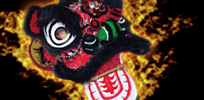 |
Robertbluri:
11/18/2019 7:25:54 AM
|
This is my firs post here :)
|
|
|
Mike Falba:
3/17/2011 9:01:36 PM
|
Hello Mr. Lin,
It was nice to find your website, and it's good to see you doing well.
I sincerely enjoyed studying with you in Silver Spring, MD back in the 1970's.
Be well,
Mike Falba
|
|
|
Sifu Don Reynolds:
3/2/2011 5:34:44 AM
|
"Twei" may also be "tui" in pinyin, which means leg or thigh. This is closer in pronunciation and spelling to Twei than "chuai".
|
|
|
Sifu Don Reynolds:
3/2/2011 5:14:16 AM
|
"Li He Twei" is listed as "Inside Crescent Kick" in our terminology where the kick goes from outside to inside. "li he" means "separation and reunion". "li" can mean to go away. "he" can mean to join. The closest to "Twei" in pronunciation and meaning in pinyin is "chuai", to kick.
Wai Bai Twei is listed as "Outside Crescent Kick" where the kick goes inside to the outside. "wai" means outside. "bai" means to open. Again the closest to "Twei" in pronunciation and meaning in pinyin is "chuai", to kick.
It is hard to tell from "Li He" whether the "Long Twei" (Dragon Kick) variation would be toe in or out, but it is fairly clear from Wai Bai that the foot should be open or pointed out for Wai Bai Long Twei. Therefore the toe should be in for Li He Long Twei.
Hope that clarifies things!
|
|
|
nick:
10/23/2010 1:51:28 AM
|
your site is great, i never knew there was a place that taught shaolin style arts anywhere near where i live, i will surely intend to join as soon as i can...much respects and appreciation towards your school and teachers
|
|
|
Sifu Don Reynolds:
12/1/2008 10:57:57 PM
|
Eric,
Cheng (Overacting) as referred to in my five element diagram is not the same as the Ke (Destructive) cycle.
Cheng follows the same path as Sheng (Creative), but an overactive element in an imbalanced system can effectively destroy the element it is supposed to create.
Similarly an overactive element in an imbalanced system can overcome the element that would normally destroy it in the Wu (Insulting) cycle.
The nature of this closed system means that an overactive element will have a an effect on all elements that touch it, and so on.
For example excessive Fire will still destroy Metal, but it can also overact Earth and destroy it as well. Plus Water may not be able to destroy the excess Fire.
You can follow this line of thinking around the entire chart and see that excess in any element has a dramatic effect on all elements. You should always strive for balance.
Wood, Fire's creator, would naturally be depleted as Fire grew out of control and is the key to ending the imbalance naturally. Without Wood the excess Fire will diminish. You could also fight Fire with Fire, so to speak, to accelerate the process with greater immediate peril.
That is my take on it from a purely philosophical point of view. Remember that the key to the use of the elements is intent. Without intent there is no form or shape and the cycles can be interpretted in many ways. Once your mind has intent, the cycle at work will have unmistakeable presence.
|
|
|
Eric:
8/1/2008 2:46:52 PM
|
Greetings. I have a question about the cheng cycle. On some websites (like acupuncture websites) the cheng cycle has the same relationships as the ke cycle instead of the sheng cycle. Is a different theory being used in this case? Thank for any info.
|
|
|
denise richardson:
6/15/2008 12:19:27 AM
|
Sigung Norman Smith
The qualities that make you an exemplar teacher are:
1. Your ability to encourage and motivate student to strive for excellence
2. Your innate comprehension of the importance of capacitating people and pushing them out of the nest to become teachers
3. Your love of "family"
4. Your expertise at discovering the uncut gems - and using differentiated instruction to shape those diamonds into beautiful jewels
I consider it a gift, honor and privledge to learn from you as a student and as a member of your extended family
|
|
|
Webmaster:
2/28/2007 5:03:24 PM
|
We hope you find the website entertaining and useful. Please use this page to post general comments and questions. There is also a form to submit information requests on the Contact Us page.
|
|
|



 Friday, February 13
Friday, February 13  Site Intro
Site Intro Guest Book
Guest Book Contact Us
Contact Us Mailing List
Mailing List Testimonials
Testimonials Coupons
Coupons School Location
School Location Class Schedule
Class Schedule Tien Shan Pai Curriculum
Tien Shan Pai Curriculum Wing Chun Curriculum
Wing Chun Curriculum Tai Chi Chuan Curriculum
Tai Chi Chuan Curriculum Seminars
Seminars Event Calendar
Event Calendar News
News Articles
Articles Photo Gallery
Photo Gallery Products
Products Chinese Terminology
Chinese Terminology FAQ
FAQ

